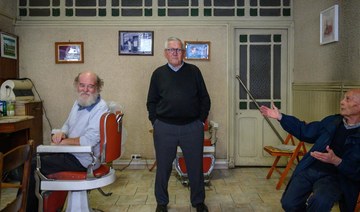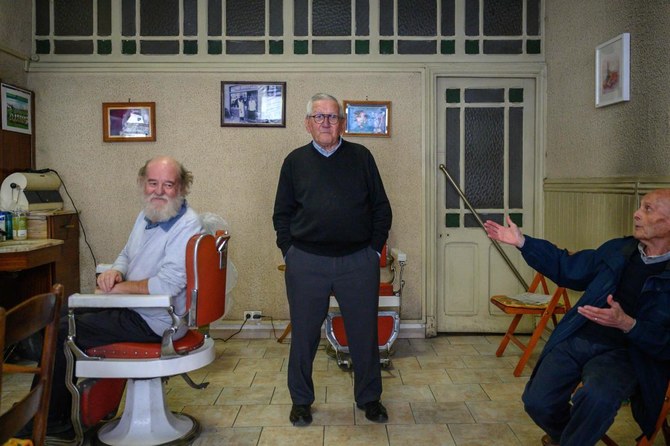LEOBEN, Austria: Every two weeks, Alena Konecna packs her bags to leave her own mother and daughter at home in Slovakia and travel some 400 kilometers (250 miles) across the border into Austria to take care of someone else’s mother.
As citizens across the continent prepare to vote in May’s European Parliament elections, 40-year-old Konecna is an example of those who regularly take advantage of one of the EU’s most important pillars: the free movement of labor.
She’s one of more than 65,000 people — mostly women from Slovakia and Romania — who form the backbone of Austria’s domestic care sector.
For two weeks at a time, Konecna stays with the 89-year-old bedridden woman to cook and care for her.
“Without care workers from abroad, the 24-hour care system would break down... No one (in Austria) wants to do it,” says Klaus Katzianka, who runs the agency that found Konecna her current job and who himself needs round-the-clock care due to a disability.
But the arrangement may be coming under strain.
Austria — along with other countries such as Germany, Greece and Italy — looked to poorer neighboring states after the fall of communism to meet the need for carers generated by an aging population and changing family structures.
But it is “problematic to build a system on this,” says Kai Leichsenring, executive director of the European Center for Social Welfare Policy and Research.
As eastern European nations become richer and their own populations age, workers there may increasingly choose to stay put, he warns.
Western European nations would then have to look further afield — to Ukraine or China, for example — to meet the ever-growing demand.
In Konecna’s case, she started to work as a caregiver more than two years ago in the town of Leoben, nestled amid mountains in the Austrian countryside, which reminds her of her home in Banska Bystrica in Slovakia.
Previously the single mother worked in a factory in the car industry.
Fed up with the long shifts and inspired by her mother’s erstwhile career as a nurse, in 2015 she took a three-month course in first aid and care skills, including some practical experience in nursing homes.
She also took a one-month German course, allowing her to watch TV with her employer and read newspapers to her.
Care workers can earn roughly double as much in Austria than in Slovakia, although Konecna says it’s hard to leave behind her daughter, now 19.
“My daughter was often sick when I was away. And I have missed things like my daughter’s birthday,” she says, adding she would prefer working in Slovakia if wages were better there.
Besides being separated from their families, there are other problems in how the sector works across Europe.
A study by the Johannes Gutenberg University in Mainz found inadequate training, extreme working hours and salaries below the legal minimum wage.
Up to 300,000 caregivers are estimated to work in private homes in Germany, mostly illegally. They previously hailed mostly from Poland but now increasingly come from poorer EU states such as Romania and Slovakia.
Konecna was put off going to Germany by the more gruelling cycle which is common there, with workers staying three months at a time.
For many of those from poorer EU member states working in the West, workplace conditions can leave lasting effects.
In Romania, more than 150 women were hospitalized at Socola Psychiatric Hospital in the country’s northeast last year alone, their mental health having suffered after caring for the elderly abroad — what has become known as the “Italy syndrome.”
“I had the misfortune to work all the time for elderly people suffering from Alzheimer’s so I spent most of my time between four walls, under constant pressure,” says one former hospital patient, a 58-year-old mother of two who worked in Italy from 2002 until 2014.
“I devoted the most beautiful years of my life to elderly Italians.”
Added to the stress of such jobs, there are signs that EU migrant workers like Konecna may come under fire from their host governments.
Last year in Austria for example, the right-wing government decided to cut the amount of child benefit paid to foreigners who work in Austria but whose children live abroad in lower income countries.
With a monthly salary of about 1,200 euros ($1,400), Konecna says the changes have meant an effective pay cut of 80 euros, a “big minus” for her.
Katzianka, who fears difficulties to find carers from Slovakia now, has hired a lawyer for Konecna to contest the change.
Romania has also protested to the European Commission over the change, saying it violates EU principles of equal treatment.
































